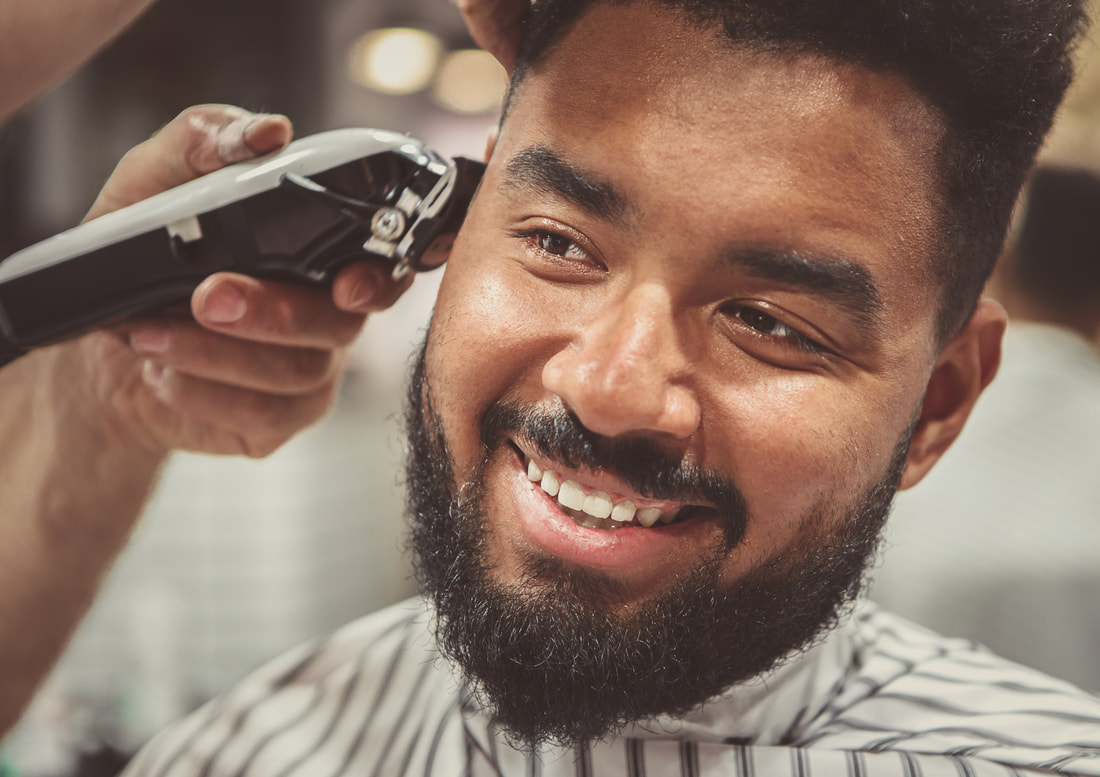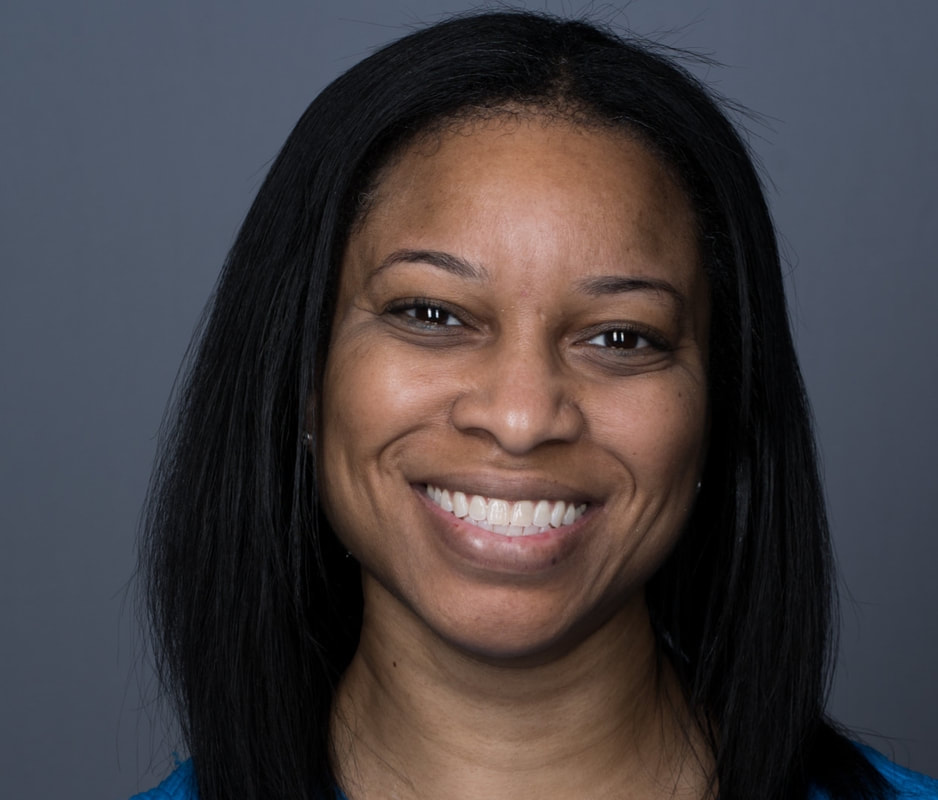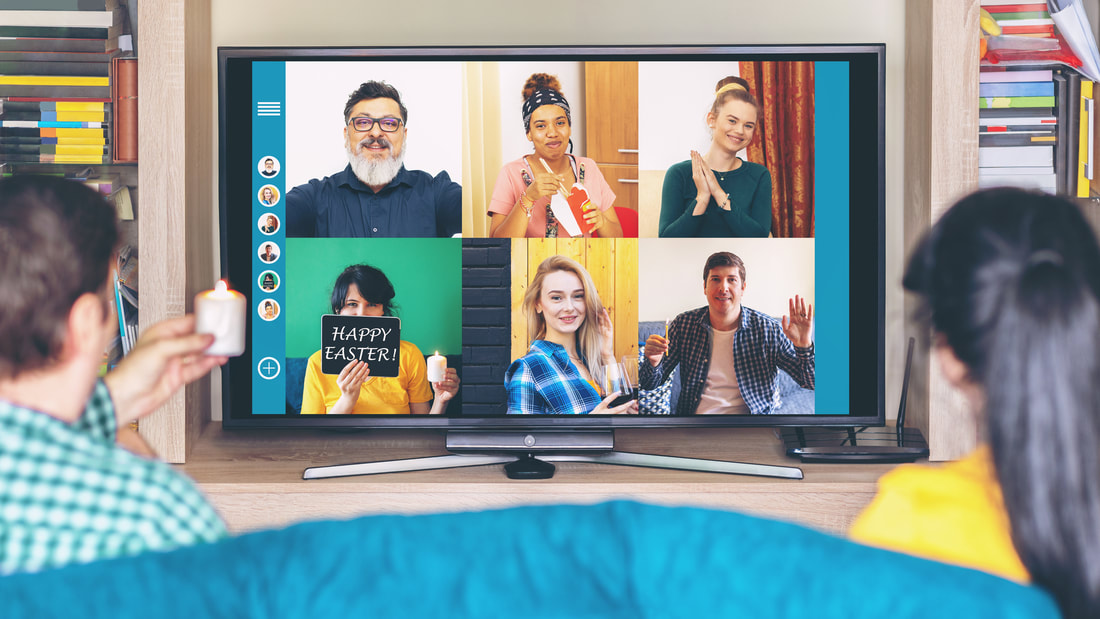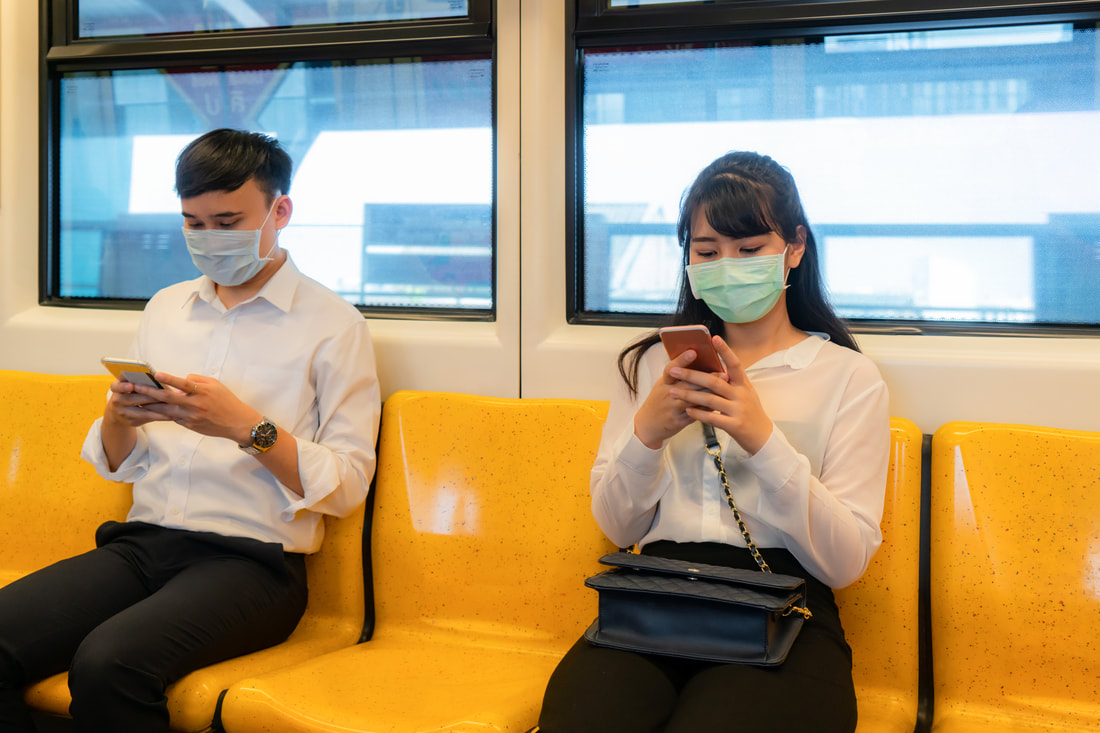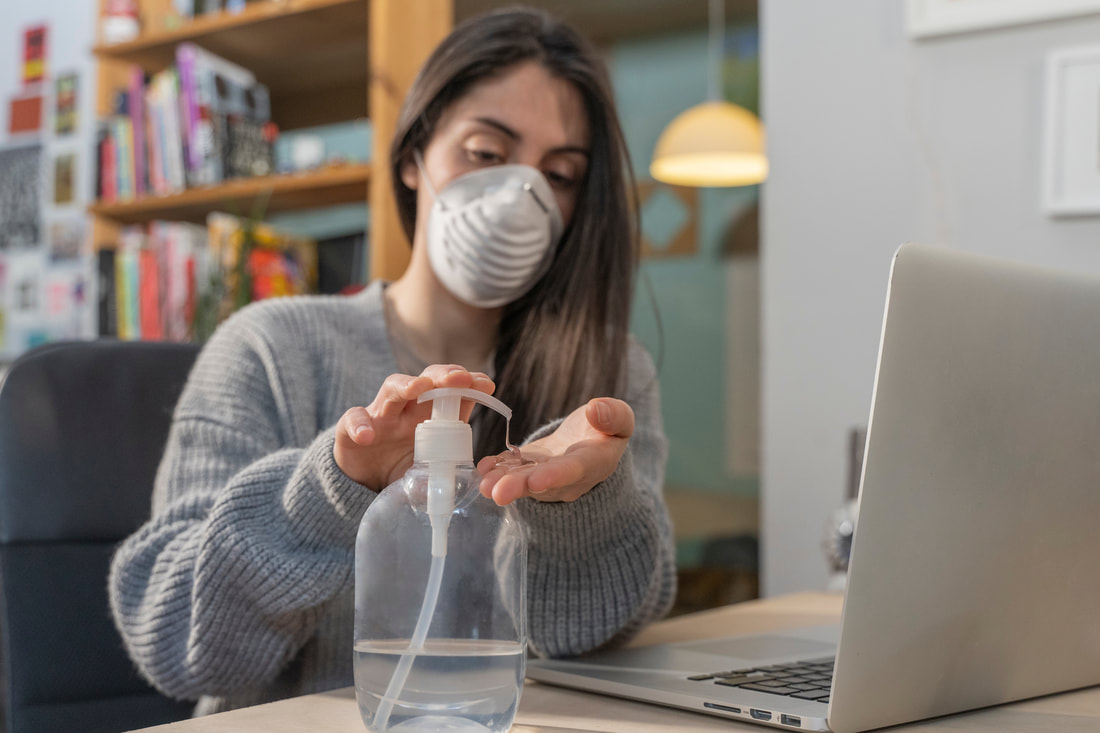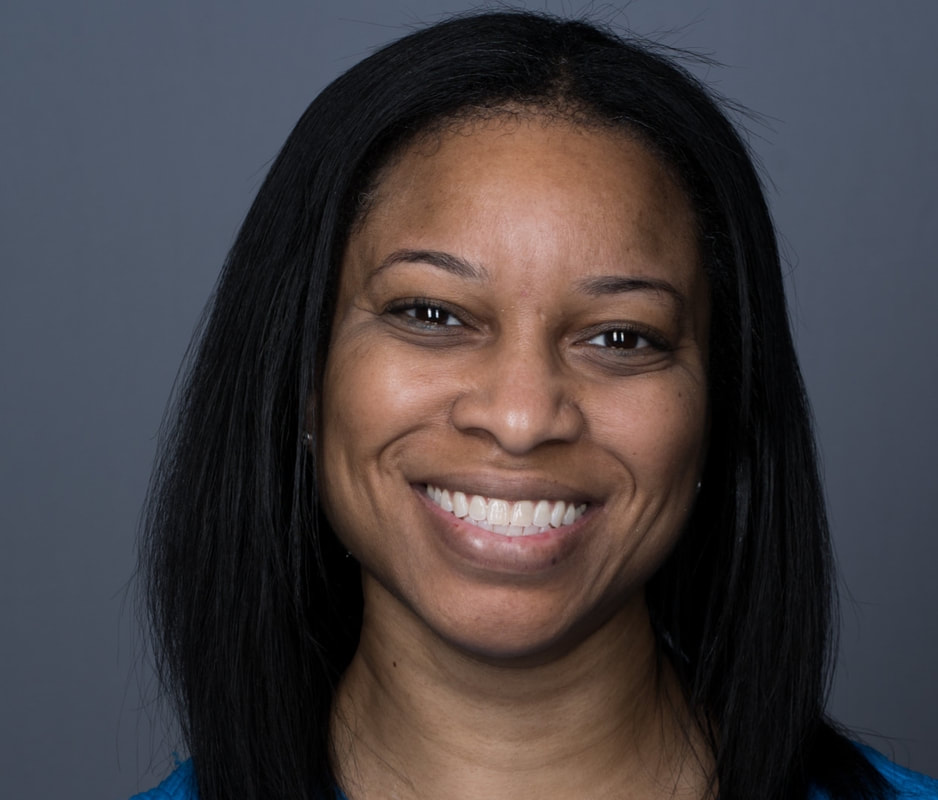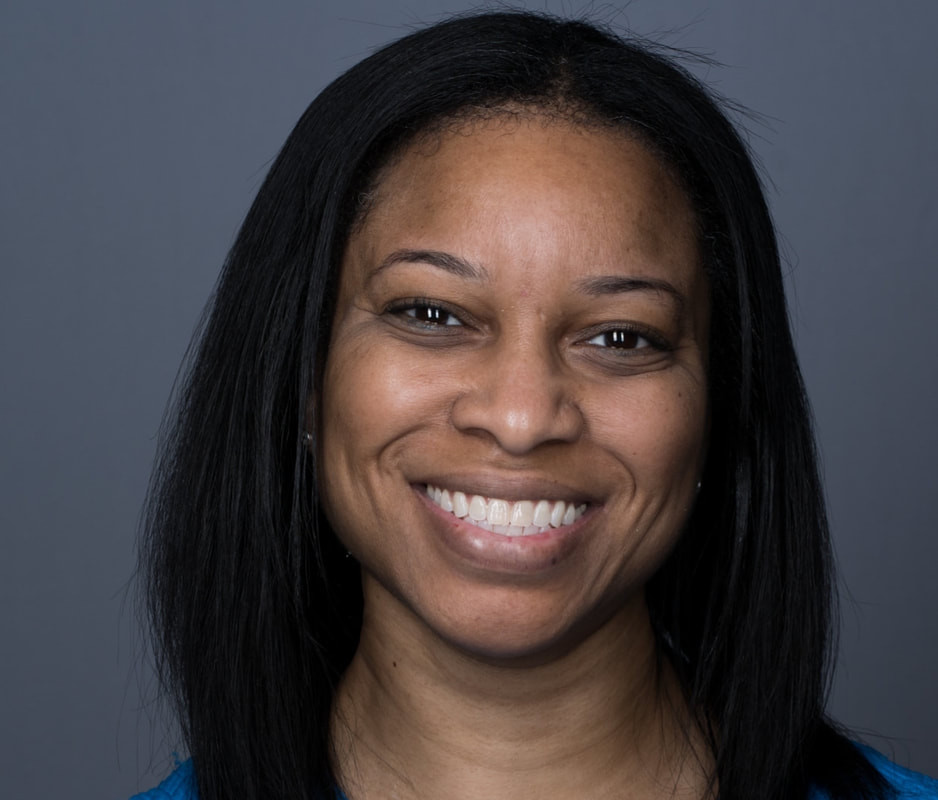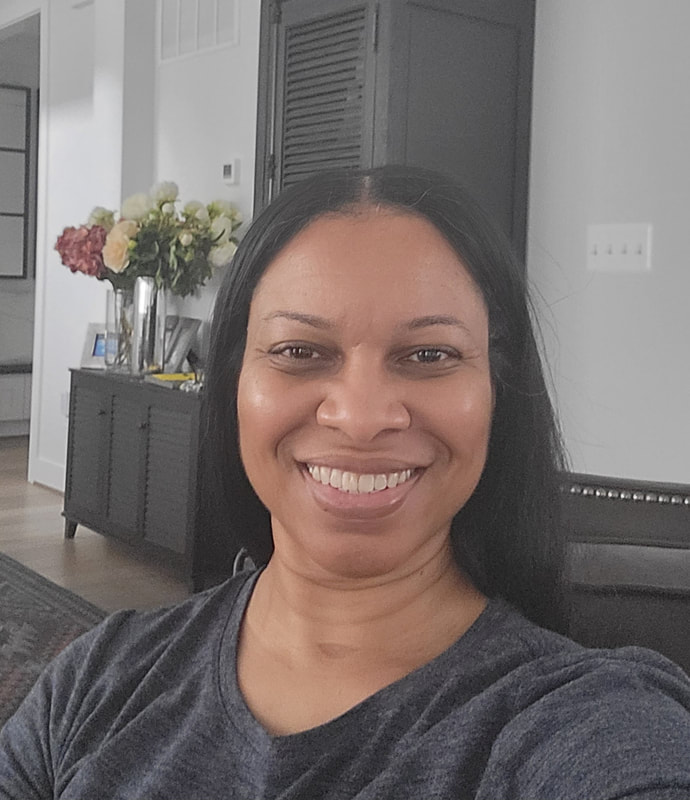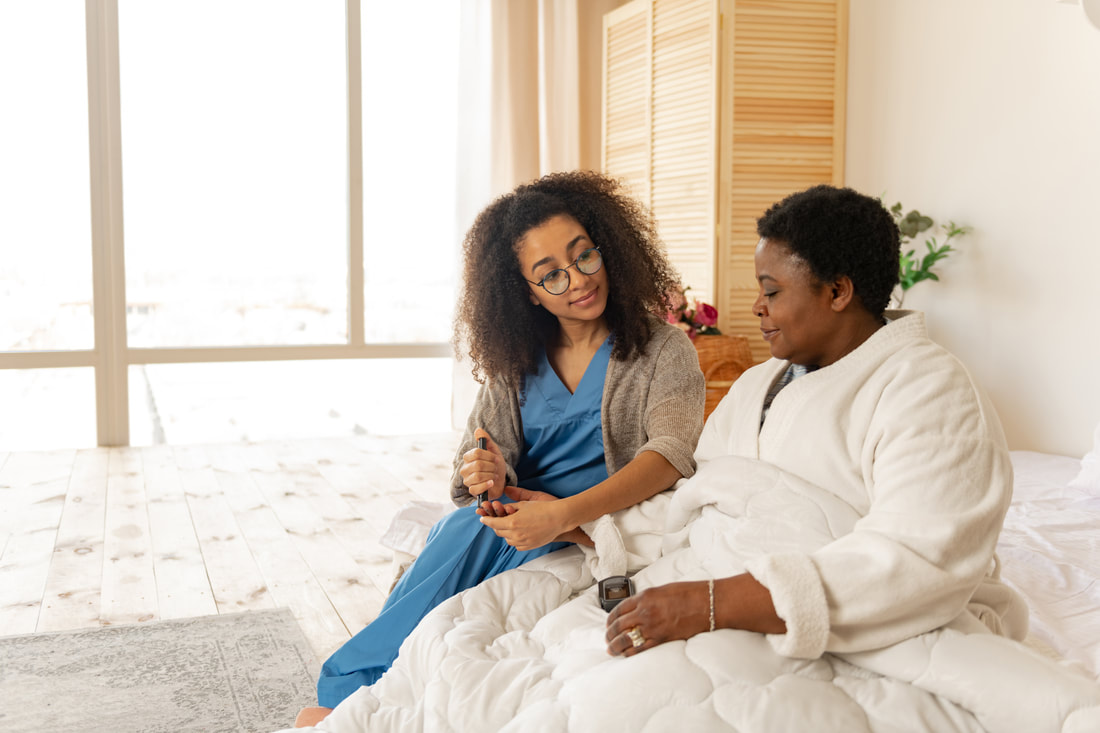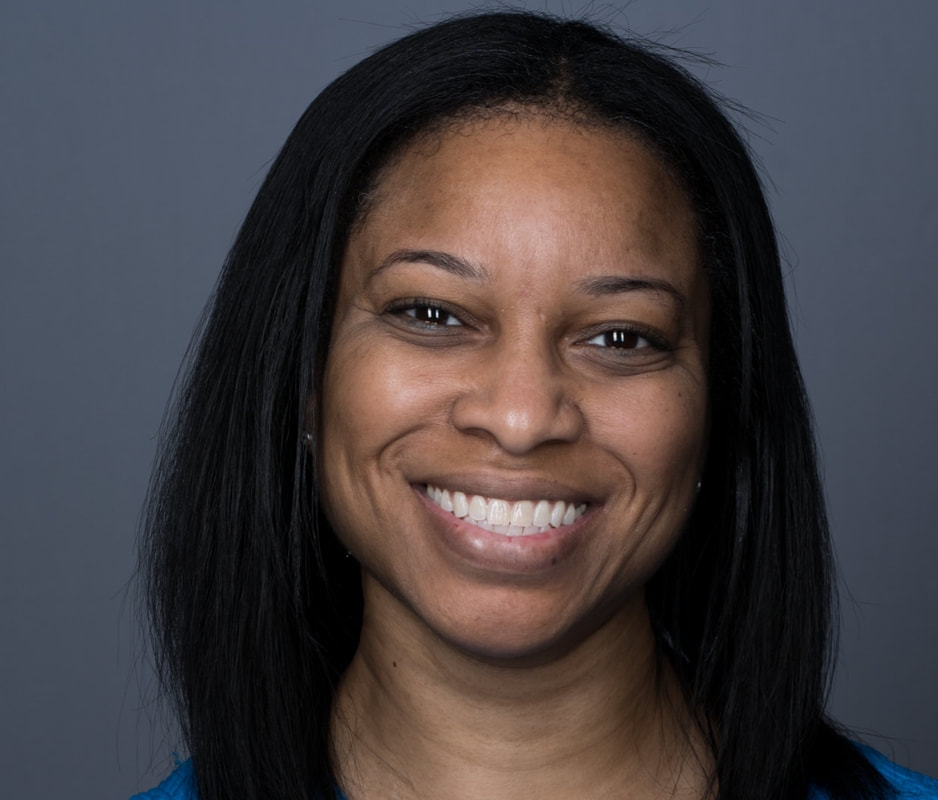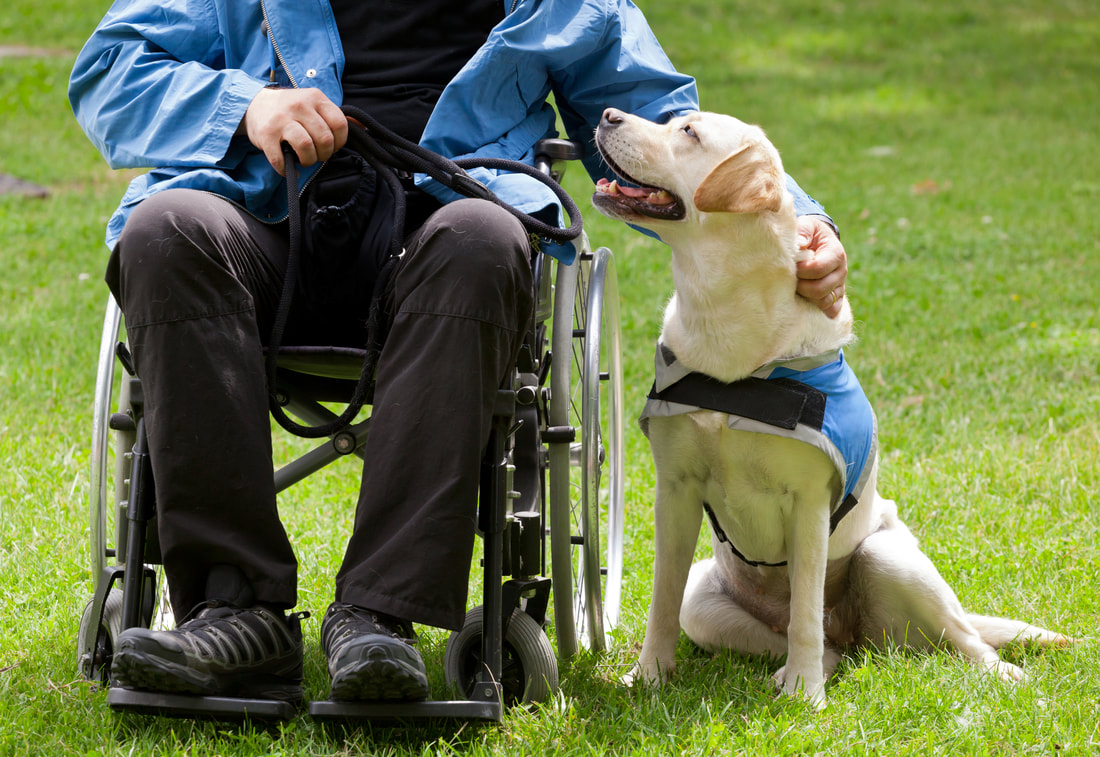|
Barbershops and salons have been a staple of many Black and Brown neighborhoods for decades. Many Black and Brown folks identify these shops and salons as safe spaces to get a haircut/hairdo from a professional who uniquely understands the nuances of their hair. These are spaces where people meet, network, get counsel, feel safe, and leave with a new hairdo and a new level of self-esteem and confidence, which only comes from that great cut or style you can get at your neighborhood shop. For minorities who may have spent many years of their lives stigmatized and traumatized, due to having different hair texture from their Caucasian peers, a fresh haircut or well-groomed mustache or beard can help boost how they perceive their self-worth. It can also give the confidence to walk in the footsteps of their community leaders and idols, who teach the importance of showing up to everything well groomed. The forced shutdown of salons and barbershops due to the COVID-19 pandemic has had an impact on the whole country and, indeed, worldwide. For the Black and Brown community, the negative effects of the pandemic could leave a culture without a safe space that provides emotional support, confidence, friendship, and counsel in a sometimes biased world. Many men of color who are trying to overcome traumas and economic and social barriers may suddenly feel more powerless as neighborhood establishments close- symbolic of yet another loss they must endure . Many feel that a well-groomed appearance is critical, but don’t know what to do with their hair, in a society where hair shaming can be an element of their professional review. Furthermore, they suddenly have lost the comfort and emotional support of their stylist, who they usually express their issues, worries, thoughts, feelings and troubles with, so they don’t burden their family with these. As Dr. Victor from Cedar-Sinai Medical Center recently found in his national study, “Barbershops are a unique popular meeting place for African American men” and almost like a social club for them. How do you survive COVID-19 without your hair expert?
References
4 Comments
Do you feel like the Center for Disease Control (CDC) just ripped the rug out from under you with their new mask recommendations? Logically we understand that good honest Americans are wearing masks to protect both themselves and others from COVID-19, and to slow its spread. Yet, despite the CDC’s recommendations and the fact that many municipalities are enforcing new regulations requiring people to don masks in public, you may feel a familiar sense of panic and doom when you see masked parties. #METOO, you are not alone. Many, especially #VictimsOfCrime, feel their heart racing and find themselves short of breath when approached by masked individuals. Suddenly, anxiety can flood their bodies and memories of past crimes and traumas can overwhelm them. If you are a victim of #SexualAssault, #ChildAbuse, or other crimes, COVID-19 can be especially painful and make doing normal activities challenging due to the changes COVID-19 regulations have caused in society. It can also be life-changing to those with conditions such as Asperger’s, #Anxiety, obsessive compulsive disorders, or other mental health conditions. They too can feel themselves consumed by terror when they go out into the newly masked world. Even those with no past traumas or medical conditions can find that masks trigger a sense of panic within them. This is because, ever since we were children, many have been almost conditioned to be wary of anyone wearing a mask, after all many bank robbers and criminals on television tend to don masks right before committing a crime. A recent McKinsey survey found that 64% of those responding reported feeling anxious or depressed for reasons related to COVID-19. Regardless of if you have experienced sexual assault, robbery, trauma, depression or another condition that has left you with a need to feel in control of your surroundings, or simply feel anxious when you see masks, now is a great time to address our phobias, fears, mental conditions, and emotional baggage left from life experiences. By addressing these now, you can prepare yourself to thrive once the COVID restrictions are lifted. Here are some things you can do to help navigate the new norm: 1. Acknowledge that the emotions you feel are a normal response caused by a thought or external threat 2. Engage in positive self-though when you experience negative emotions or thoughts 3. Carry water to sip whenever symptoms arise to help you tap into a mindfulness activity and mentally reconnect with your body and environment 4. Try to wear a mask 10-15 minutes, or as long as you comfortably can, daily to train your mind that you can be safe, even while masked 5. Identify professionals to help you process your experiences and provide you with interventions to help you feel safe in this world where, in the name of public safety, faces are concealed and people isolated 6. Follow guidelines that apply to you and mask-wearing during this pandemic 7. Try to stay busy with hobbies, such as reading to help keep your mind occupied on things other than your fears, anxieties, past traumas, and worries 8. Establish a routine to help normalize these new norms in your mind and help you find a sense of safety in a routine The world is dealing with an acute crisis and we are here to help. Contact us if you would like professional help to assist you in processing your experiences and navigating this new masked world. You can also find help online at the COVID-19 Mental Health Resource Hub: pyschhub.com/covid-19 and on the American Foundation for Suicide Prevention’s Mental Health and COVID-19 page at afsp.org/campaigns.covid-19. References
With over 1.5 billion people world-wide asked to stay home and tens of thousands of deaths related to COVID-19, it may seem ludicrous to celebrate Easter, or anything. After all, our country is in despair with news of new deaths ever-present, as we try to get the Coronavirus (COVID-19) pandemic under control and protect loved ones and vulnerable populations. However, that is precisely why we must celebrate Easter, milestones, and holidays. These events allow us to find some normalcy in this chaos, find comfort in doing what is within our power to do, create positive memories amid this era of trauma, and help us and the children around us feel calm and safe. Remember when you were a child and the lights went out during a storm; your parents didn’t fret. Instead, they made the best of it with outdoor cooking, flashlights and fun so you felt calm and safe. In fact, dating back several millennia B.C. ancient civilizations celebrated despite pandemics and tragedies. Research has found that people who take the time to celebrate events and milestones tend to have more energy, better physical health, improved mental health and less anxiety. So let’s be good to ourselves and create positive memories by celebrating Easter and the holidays that follow during this time of crisis. Here are some ways you can keep celebrating Easter and other events:
References
Social distancing is needed to limit infection, but it can erode our mental health. Due to the coronavirus (COVID-19), we now have an epidemic of loneliness and isolation. Recent research shows that more than three in five working American’s feel lonely and report it affecting their mental health. This doesn’t even consider those out of work due to coronavirus (COVID-19). The Health Resources and Service Administration noted that loneliness can contribute to depression, high blood pressure, heart disease, and cause chronic inflammation by activating our fight-or-flight response. This response also reduces about body’s immune system and virus defending capabilities. One study by the Health Resources and Services Administration cautioned that loneliness can be as damaging to your health as smoking 15 cigarettes a day. This is not surprising considering the multitude of mental and physical aspects connecting social contact to our health. For example, a 20 second hug helps our body produce oxytocin, a chemical proven to boost mood and speed healing. For centuries humans have lived in groups and been conditioned to almost need socialization to maintain mental stability. In fact, military special-forces and astronauts go through special training just so they can combat intermittent loneliness caused by isolation on missions. Without such training, when you are isolated you may experience the same challenges of a person in solitary confinement- the feeling that you have to psychologically endure wherever your mind wanders without anyone else or many options for reflection. Social distancing takes these negative feelings a step further. The news conditions us to be suspicious of others, alert, and anxious. Due to media reports we are almost always watching for potential sources of infection. Additionally, the activities and interventions needed to stave off these negative mental health impacts, such as exercising or crossword puzzles, requires significant mental energy or motivation, both of which can be drained by social isolation, especially for people who thrive on the energy of others and social events. Changes in the status quo typically puts most people at risk of depression. Yet, even in this era of limited face-to-face meetups, mistrust, and change there are interventions to help us stay sane, calm, and mentally healthy. We suggest the activities to help stay mentally healthy:
References: de Jong Gierveld, Jenny, Theo Van Tilburg, and Pearl A. Dykstra. "Loneliness and social isolation." Cambridge handbook of personal relationships (2006): 485-500. Hodgins, Sheilagh, and Gilles Côté. "The mental health of penitentiary inmates in isolation." Canadian J. Criminology 33 (1991): 175. Neri, Anita Liberalesso, et al. "Relationships between gender, age, family conditions, physical and mental health, and social isolation of elderly caregivers." International Psychogeriatrics 24.3 (2012): 472-483. Smith, Kimberley J., and Christina Victor. "Typologies of loneliness, living alone and social isolation, and their associations with physical and mental health." Ageing & Society 39.8 (2019): 1709-1730. Wang, Cuiyan, et al. "Immediate psychological responses and associated factors during the initial stage of the 2019 coronavirus disease (COVID-19) epidemic among the general population in china." International Journal of Environmental Research and Public Health 17.5 (2020): 1729 Wang, Jingyi, et al. "Social isolation in mental health: a conceptual and methodological review." Social psychiatry and psychiatric epidemiology 52.12 (2017): 1451-1461. Xiang, Yu-Tao, et al. "Timely mental health care for the 2019 novel coronavirus outbreak is urgently needed." The Lancet Psychiatry 7.3 (2020): 228-229.
Are you worried every time someone coughs or fearful crowds will make you sick? You're not alone. Diseases are endemic. We are always advised to use universal precautions such as washing hands, using hand sanitizer, cleaning well, and wearing masks around those who may be ill. However, what do you do when there are no Lysol, Purrell, or mask products for miles around? For many this causes increased stress and anxiety that can significantly impact both their personal mental health and their family relationships. This scarcity of common items signals that world anxieties may have reached peak levels. Around the world, people are canceling conferences and events in panic over the COVID-19 pandemic. As we can observe with the current events, people are bombarded 24/7 with news of vast infections and deaths. Our brains react to this perception of a crisis and our levels of fear-based anxiety increase. This can be the start of a vicious fear driven cycle, which causes people to react more, get more anxious, and become even more fearful and unable to function effectively and logically. While there are benefits of the anxiety caused by pandemics, such as:
Virtual sessions are as easy to do as 1-2-3!!! Our simple process:
References:
Who are you and what do you want for 2020? Many feel that the chaotic world is closing in on them or they are trapped in the role of being a caregiver, parent, friend, child, partner or confidant, unable to shut out the needs, wants, opinions, demands, and chaos of society and others. It is hard being relied on or co-dependent 24/7, yet the thought of being alone can be hard and challenging for those struggling with co-dependency or whom are relied on by others. Freud even noted that “the first phobias relating to situations are those of darkness and solitude.” Yet, if you are seeking to incorporate minimalist philosophies into your life, find peace, gain focus, or strategize on how to move forward and become a better you, we recommend adopting a practice used by philosophers, such as Plato, monks, and celebrated celebrities for centuries. Entire books by renown authors, such as Peperzak, showcase the benefits of solitude. Bowker, a psychoanalytic political theorist, found that productive solitude is a labor and can be uncomfortable at first, but offers countless benefits. Productive solitude is not isolation from the world, instead it is going off the grid for a bit, being alone for a few hours or days, or otherwise separating yourself from others and the world for a period of time. Benefits of this include:
Due to these and other benefits, solitude can increase your emotional and physical capacity, while making you a better entrepreneur, colleague, leader, parent, friend. Partner and more. Here are some ways to experience productive solitude:
As you take the time and space to reconnect with your thoughts, dreams, and needs, the sound of solitude will have a beautiful ring to you and soon you will look forward to it, despite your co-dependencies or other responsibilities. Let’s make 2020 the year you commit to your mental health and happiness. Commit to productive solitude and see the benefits for you and those around you. Resources
References Birditt, Kira S., et al. "Better off alone: Daily solitude is associated with lower negative affect in more conflictual social networks." The Gerontologist (2018). Bowker, Matthew H. "A View from Political Theory: Desire, Subjectivity, and Pseudo‐Solitude." The Handbook of Solitude: Psychological Perspectives on Social Isolation, Social Withdrawal, and Being Alone (2013): 539-556. Ingleheart, Jennifer, ed. Two Thousand Years of Solitude: Exile After Ovid. Oxford University Press, 2011. Jiang, Da, et al. "Everyday solitude, affective experiences, and well-being in old age: the role of culture versus immigration." Aging & mental health (2019): 1-10. Larson, Reed W. "The solitary side of life: An examination of the time people spend alone from childhood to old age." Developmental review 10.2 (1990): 155-183. Lay, Jennifer C., et al. "By myself and liking it? Predictors of distinct types of solitude experiences in daily life." Journal of personality 87.3 (2019): 633-647. Littman-Ovadia, Hadassah. "Doing–Being and Relationship–Solitude: A Proposed Model for a Balanced Life." Journal of Happiness Studies (2019): 1-19. Long, Christopher R., and James R. Averill. "Solitude: An exploration of benefits of being alone." Journal for the Theory of Social Behaviour 33.1 (2003): 21-44. Nguyen, Thuy-vy T., Richard M. Ryan, and Edward L. Deci. "Solitude as an approach to affective self-regulation." Personality and Social Psychology Bulletin 44.1 (2018): 92-106. Peperzak, Adriaan Theodoor. System and History in Philosophy: On the Unity of Thought & Time, Text & Explanation, Solitude & Dialogue, Rhetoric & Truth in the Practice of Philosophy and its History. SUNY Press, 1986.
Deadlines loom and the holidays approach, all you want to do is finish work for a critical project. However, your work neighbor is distracting you with their relationship woes; then another colleague walks up from behind and taps on your shoulder startling you. Chitchat, weird noises, unexpected physical contact, and other disruptions abound. Due to your open workspace, where desks are shared and walls are scarce, you feel bombarded with distractions and unable to work efficiently. Your recent trauma, be it sexual assault or another event, makes you even more on edge. Is this familiar? These are some of the challenges people with attention deficit hyperactivity disorder (ADHD) face daily in open workspaces. Even for people without ADHD or recent traumas, open workspaces reduce productivity and focus, while increasing sick leave rates, as noted in the research by Haynes, Mak, Bodin, Haapakangas, and others. A BBC report estimated that open office concepts reduce productivity by 15%, yet continue to be favored by many employers. Open office concepts aren’t disappearing soon. They were originally designed to maximize collaboration, improve employee social interactions and maximize employee satisfaction, as noted by Al Marzouq et al, but they have since also been promoted to reduce employer costs by reducing the office space, office equipment, and walls required per employee. Currently, approximately 70% of American companies have cubicle free, wall free open offices (Smollan et al). This trend is expected to increase as more people work part time from home, utilize flex schedules, seek more collaboration and for other reasons don’t need full time use of an office desk, as found in studies by Bernstein and Maher. Since open offices aren’t going away, here are tips to consider in order to work as effectively as possible within them.
If you are facing challenges focusing, avoiding distractions, or managing emotions in the workplace due to ADHD, trauma, or office setup, please make time to consult with your work supervisor, counseling and/or medical teams to formulate a plan that allows you to be the best you in the workplace, and still adhere to your company’s mission, regulations, and protocols. You deserve to have the tools you need to excel in your workplace and career. References AlMarzouq, Mohammad, et al. "Open source: Concepts, benefits, and challenges." Communications of the Association for Information Systems 16.1 (2005): 37. Bernstein, Ethan S., and Stephen Turban. "The impact of the ‘open’workspace on human collaboration." Philosophical Transactions of the Royal Society B: Biological Sciences 373.1753 (2018): 20170239. Bodin Danielsson, Christina, et al. "Office design's impact on sick leave rates." Ergonomics 57.2 (2014): 139-147. Haapakangas, Annu, et al. "Benefits of quiet workspaces in open-plan offices–Evidence from two office relocations." Journal of Environmental Psychology 56 (2018): 63-75. Haynes, Barry P. "The impact of office layout on productivity." Journal of facilities Management 6.3 (2008): 189-201. Khazanchi, Shalini, et al. "A spatial model of work relationships: The relationship-building and relationship-straining effects of workspace design." Academy of Management Review 43.4 (2018): 590-609. Maher, Alena, and Courtney von Hippel. "Individual differences in employee reactions to open-plan offices." Journal of environmental psychology 25.2 (2005): 219-229. Mak, Cheuk Ming, and Y. P. Lui. "The effect of sound on office productivity." Building Services Engineering Research and Technology 33.3 (2012): 339-345. Oldham, Greg R., and Daniel J. Brass. "Employee reactions to an open-plan office: A naturally occurring quasi-experiment." Administrative science quarterly (1979): 267-284 Smollan, Roy K., and Rachel L. Morrison. "Office design and organizational change." Journal of Organizational Change Management (2019).
Why can’t she at least pretend to be interested in my passions, if she loves me? Why does she act like an irresponsible child? Why does she miss deadlines, and forget dates important to our union? Why does she have difficulty managing finances? Why is there a lack of any focus or follow through? Is she committed to the relationship? How would this work with kids? Does this sound familiar? It does to John. He fell in love with a brilliant, sharp witted and adventurous girl with unmatched intensity. When he was sick in bed, she talked and talked and talked, keeping him entertained for hours. However, right after marriage and merger of residence, he began to feel the relationship falling apart. John could not understand how she could transform in seconds from a sweet and a dotting wife to a fire breathing dragon screaming in anger. The tiniest things, such as a spilt cup of milk, could set her off. He was wondering if divorce was the only solution, but he loved her and wanted to sustain his family unit. In the past ADD/ADHD had to be diagnosed before age 7, so adults went through life undiagnosed and untreated. People with ADD/ADHD often would struggle in school, unless someone provided them structure and supervision. At work they may have trouble finishing projects, multitasking, switching activities or even meeting the basic demands of their career without getting overwhelmed. At home they could destroy relationships with their unpredictable mood swings, short fuse, and lack of focus. Fortunately, now, in most cases during graduate school or college, physicians and mental health professionals, can diagnose adults with ADD/ADHD, due to a change in the Diagnostic and Statistical Manual of Mental Disorders. Happily, John was able to regain the trust, intimacy, and open communication he once had with his wife, and the married was saved because his wife was diagnosed with ADD/ADHD and sought treatment, which included couple counseling for work around communication and psycho-education. Are you or someone you know:
These are some, but not all the symptoms of adult ADD/ADHD. If these are affecting your life or that of a loved one, consider talking with your primary care physician or a mental health professional. They can do an assessment for ADD/ADHD and help you better manage your life and relationships. If diagnosed, management and treatment options with professional oversight may include:
Relationships and marriage take two, learning about how ADD/ADHD can impact relationships can help you build trust and strength in your relationships. Seeking both medical and psychological advice and consultation around the appropriate treatment for your unique circumstances is advised. References: Brown, Thomas E. "ADD/ADHD and impaired executive function in clinical practice." Current Attention Disorders Reports 1.1 (2009): 37-41. Brown, Thomas E. "Differential diagnosis of ADD versus ADHD in adults." A comprehensive guide to attention deficit disorder in adults: Research, diagnosis, and treatment (1995): 93-108. Dixon, Ellen B. "Impact of adult ADD on the family." A comprehensive guide to attention deficit disorder in adults: Research, diagnosis, and treatment (1995): 236-259. Kessler, Ronald C., et al. "The prevalence and correlates of adult ADHD in the United States: results from the National Comorbidity Survey Replication." American Journal of psychiatry 163.4 (2006): 716-723. Nadeau, Kathleen G. Adventures in fast forward: Life, love and work for the ADD adult. Routledge, 2013.
As with mental health challenges, diabetes is an ailment that many have to endure to no fault of their own, yet it carries so much stigma for those belonging to ethnic groups and/or those clinically obese. To manage over the course of one's life, or support loved ones we are responsible, it will challenge one's emotional capacity, as the chronic nature of the disease can support hopelessness. Anxiety and depression are common, however, such may be representative of treatment burnout. Whether you are a child diagnosed with Type 1, or an adult with Type 1 or 2, management can seem unsustainable even with the most rigid compliance. How are patients and parents psychologically impacted? What are some of the challenges that acts are barriers to maintaining a healthy balance? College Students Requires tapping out of sports, or campus-related activities when sugar levels lower- which can support the appearance of unreliability. Requires you to work through shame and embarrassment around the need to monitor blood levels, consume insulin, and/or wear monitoring devices. Concerns around disclosing your diagnosis to a romantic partner during a developmental stage when perfection may be expected or desired. Pressure around having to make on your own healthcare decisions with medical teams, manage your health, and continue your regime during a time you are learning to trust your own judgment without daily parental supervision. Requires healthy eating during a time when healthy eating is already challenged by campus life. Adults Can impact sleep, travel, and activities throughout your day. Requires 7-10 sticks which can be disruptive during professional or academic pursuits. Insurance can impact how you treat- with access being a huge issue. Can impact intimacy and sex drive. Can impact self-esteem/self-confidence. Can impact your psychological presentation, including mood, communication, and capacity. Can be anxiety-provoking with fear looming of the impact of low blood. Can impact psychological behavior when blood glucose drops. Can impact your dietary preferences and habits around eating. Capacity to confront societal judgment. Parents Can impact sleep due to the need to monitor the blood sugar levels of your child throughout the night. Requires 7-10 sticks. Requires advocacy when finding trained childcare willing to accept your little one. Can require careful planning as the detection of low/high levels can shift the schedule of the whole family. Supports the feeling of isolation and responsibility for genetically passing on to your child. Requires absence from work for doctor visits and emergencies. Requires careful planning of meals to avoid disrupting the blood levels of your child. Requires a great mathematical aptitude to calculate units of insulin and caloric intake all day. Requires great capacity for monitoring the alignment of food intake and insulin consumption. The presentation of your child can be misdiagnosed as behavioral issues within the academic system. Requires financial stability and adequate insurance to support your child's health. Capacity needed to confront societal judgment. Let's talk about costs... In 2017, U.S. health care costs were $3.5 trillion. That makes health care one of the country's largest industries. It equals 17.9 percent of gross domestic product. In comparison, health care cost $27.2 billion in 1960, just 5 percent of GDP. That translates to an annual health care cost of $10,739 per person in 2017 versus just $146 per person in 1960. Health care costs have risen faster than the average annual income. Health care consumed 4 percent of income in 1960 compared to 6 percent in 2013. Those with chronic illness such as diabetes require a substantial source of funding to maintain a healthy balance. Its beyond a need to exercise and consume a healthy diet. Let's talk about access... Shortage of nephrologist : At this time, there are 39,950 people per nephrologist in the United States Source: Accreditation Council for Graduate Medical Education: http://www.acgme.org/adspublic/reports/accredited_programs.asp. So if a patient lacks medical literacy, or finds themselves under-insured, proper life-saving care is unachievable. Its equivalent to diagnosing someone with Cancer, giving them brief insurance how to stay alive, then sending them out into the world to navigate such on their own. Effected most would be those that lack a great aptitude for math, the under-insured, and those enduring severe mental illness. At Ince Counseling, we have been trained to support patients via talk therapy and offer our psychological perspective to their treatment teams as patients continue to balance their medical needs while balancing the demands of their busy lives. If this resonates with your circumstances, contact our scheduling team at 1.833.968.8255, option 1 to schedule your intake. If you'd like to chat with us prior to determine a fit, a free phone consult can be obtained by scheduling via our website. References:
By: Tamara Ince Especially important for those who plan to request certification for airlines, accommodations for college dorms, or accommodations for apartment living, all animals are not considered eqaual if they wish to register or receive public accommodations for their support animals. While it is true that animals classified as emotional support animals receive legal protections against pet fees for rental housing or fees for airline travel, along with allowances to live or be in places that pets can not, there is a difference between the protections afforded emotional support animals and those provided to support animals covered under the American Disabilities Act, and other Federal laws. For example, under the Federal American Disabilities Act, service animals covered by this regulation must be permitted anywhere that is open to the public, including restaurants, and are not subject to fees. Whereas emotional support animals may be prohibited from restaurants and subject to access fees to venues, other than airplanes and housing in some jurisdictions. While most service animals receive formal training to do a specific task, many laws for service animals, such as the Federal American Disabilities Act, does not require official certification, leaving room for interpretation and owner training. The American Disabilities Act defines a service animal as an animal that “has been individually trained to do work or perform tasks for an individual with a disability. The task(s) performed by the dog must be directly related to the person's disability.” An example is a person with depression owning a dog trained to remind her to take her medication. Psychiatric service dogs may do tasks, such as providing bracing for a person dizzy from medication, waking the owner on the sound of an alarm when too medicated to wake, doing room searches for persons with PTSD, blocking persons in dissociative episodes from wandering, leading a disoriented handler to a place, and other similar dogs. In contrast, an emotional support animal does not need to have any training, though it does need to be owned by a person with a diagnosed disability. In general, for an animal who helps you to be classified as a service animal and not an emotional support animal it must be:
The definition of “disability” varies by law. For example, the Fair Housing Act states that in order for a person to meet this standard they must have a physical or mental impairment that “substantially limits one or more major life activities; has a record of such impairment; or is regarded as having such an impairment. The Air Carrier Access Act protects any person who is a passenger with a disability. Similarly, the documentation and registration requirements vary by regulation. For example, in some jurisdictions, if the disability is not visible or the need for the animal is not evident, you may need to provide a letter from a medical provider, registration documentation from a regulatory or private entity, or other documentation. Registration requirements vary from forms and fees with self-affirmations of need to requirements for physician notes and specific diagnoses. In order to fully understand the registration requirements and what type of provider (e.g. physician, therapist, counselor, etc.) can provide needed documentation, please talk with your local regulatory agency, school or business disabilities department, leasing office, airline or other entity. Online resources are available at:
References:
|

